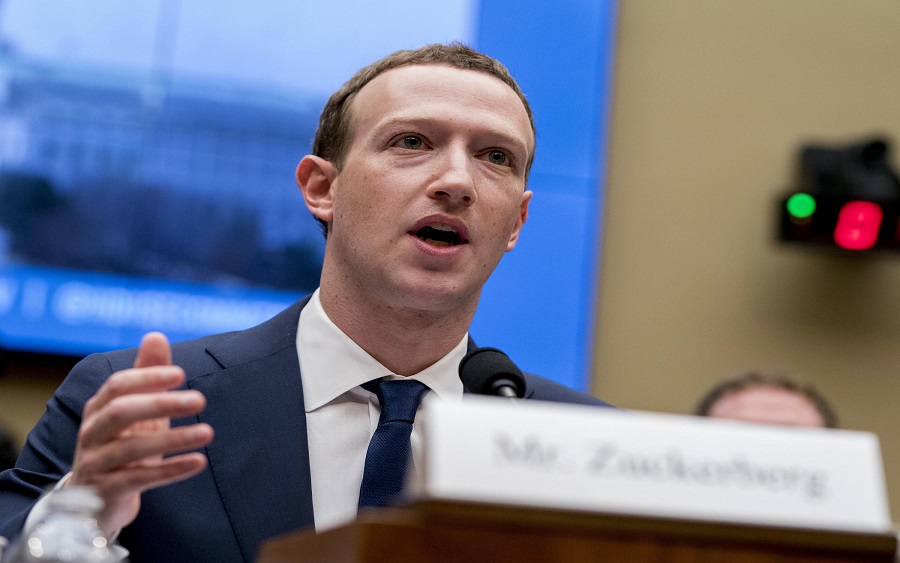Facebook CEO, Mark Zuckerberg, has announced a change in the company’s policies to now prohibit hate speech and racist content in its advertisement.
Speaking over the weekend, Zuckerberg explained that the new policy will ban advertisements “that claim people from a specific race, ethnicity, nationality, caste, gender, sexual orientation or immigration origin are a threat to the physical safety or health of anyone else”
Also, Facebook will do more to protect immigrants, migrants, refugees, and asylum-seekers from ads that suggest they are inferior to other groups of people or from ads that express contempt, dismissal or disgust directed at them.
In a Bloomberg interview, the CEO had noted that the company will ensure that Facebook remains a place where everyone can use their voice to discuss important issues, but that any attempt to incite violence, suppress voting, or discriminate a group of people, will be checked.
Why the policy change?
This change in policy comes after a weeklong tussle with advertisers with nearly 100 brands resolving to pull their ads from Facebook for the month of July or longer, as part of the #StopHateForProfit movement.
READ MORE: Facebook takes on Zoom with its new video chat feature
The movement is being backed by organizations such as the Anti-Defamation League, the NAACP, Sleeping Giants, Color of Change, Free Press and Common Sense.
We will join #StopHate4Profit and stop posting on @Facebook for the month of July. We are taking this action to protest the platform’s irresponsible propagation of hate speech, racism, and misleading voter information. We encourage clients and our own people to join us.
— Goodby Silverstein (@GSP) June 24, 2020
Although Zuckerberg made no mention of these boycotts, it would appear that this is a move to pacify advertisers, and prevent competitor platforms like Pinterest, Amazon and —- from swooping in to take advantage of the situation.
That movement protests “Facebook’s repeated failure to meaningfully address the vast proliferation of hate on its platforms.”
The brands boycotting the platform includes big spenders like Unilever, Coca-cola and Verizon, as well as some other smaller companies like Patagonia, REI, Lending Club and The North Face, according to a running list from Sleeping Giants.
It is not certain how much impact this would have on the company’s finances, given that Facebook has over 8 million advertisers on its platform, the bigger brands may soon influence more companies to join the movement.
The companies had explained during the week that Facebook was not the target of the movement but to drive home a message on the moderation of bigoted and prejudiced contents.
Remember that the #StopHateForProfit campaign is not about damaging Facebook’s bottom line, it’s about a broader reckoning around the platform’s lack of moderation of hate and disinformation.
Advertisers don’t want to sponsor violent, bigoted content or lies.
— Sleeping Giants (@slpng_giants) June 26, 2020
There is yet no hint as to whether the brands are pleased with Facebook’s new move, but it is clear that if the boycotts continue, the brands will likely shift their ad spending to other companies.
While announcing its decision to stop ads on Facebook, Instagram and Twitter in the U.S. for the rest of the year, Luis Di Como, EVP of Global Media, said in a statement;
“We are actively engaging with all digital platforms to make meaningful change and impact trust and transparency,” the statement said. “We have made substantial progress, and we acknowledge the efforts of our partners, but there is much more to be done, especially in the areas of divisiveness and hate speech during this polarized election period in the U.S.”
He added that the company will explore other media options for its ads in the U.S. in a bid to discourage “divisiveness and hate speech during this polarized election period in the U.S.”
According to marketing analytics firm Pathmatics, Unilever has spent more than $11.8 million in the U.S. this year on Facebook ads alone .
Coca-Cola CEO and Chairman, James Quincey, said in his statement that the company was not joining the official boycott like other big brands, but was only pausing ads on all social media platforms globally for the month of July.
“We will take this time to reassess our advertising policies to determine whether revisions are needed. We also expect greater accountability and transparency from our social media partners” he said.
